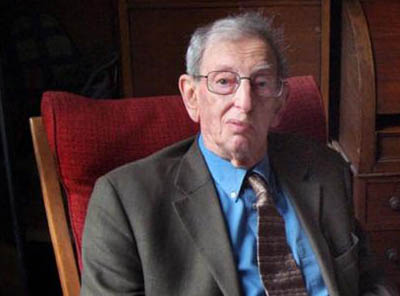
by Anouar Majid, Tingitana, October 3
Eric J. Hobsbawm, the great British historian, has died. I spent many hours and days with him in the first years of this new millennium, reading his account of the long 19th century, with its ages of revolution, capital, empire and, if the short 20th century is added to this panoramic view, of extremes. Born in Egypt in 1917, orphaned early through the loss of his two parents, he moved to England, excelled in his studies, and championed communist ideals even after they had long been discredited in our brave new world order of unbridled capitalism.
The ages he covered changed our world irrevocably. Tea, Morocco’s national drink, was introduced to that country in the heyday of the age of capital (1848 – 1875), when free trade ruled the British waves. British products and habits, invented at home or borrowed from others, were the hallmarks of a good life. British arms and tea were part of the same deal. Then the UK entered a process of decline and was eventually supplanted by the United States as the world’s newest capitalist superpower. And now, Hobsbawm told us in On Empire (published in 2008), America’s power is also waning. It is true that the world adores American culture and its products, but such Americanization is not necessarily an expression of America’s power. Nineteenth-century Britain introduced soccer, tennis, golf, alpinism and skiing, as well as business wear, but such things today have nothing to do with the power of Britain.
Hobsbawm’s prophetic voice came through despite his quiet, introvert ways. He stayed true to Communism because he believed in a better world. “I still think,†he told the New York Times in 2003, “it was a great cause, the emancipation of humanity. Maybe we got into it the wrong way, maybe we backed the wrong horse, but you have to be in that race, or else human life isn’t worth living.â€